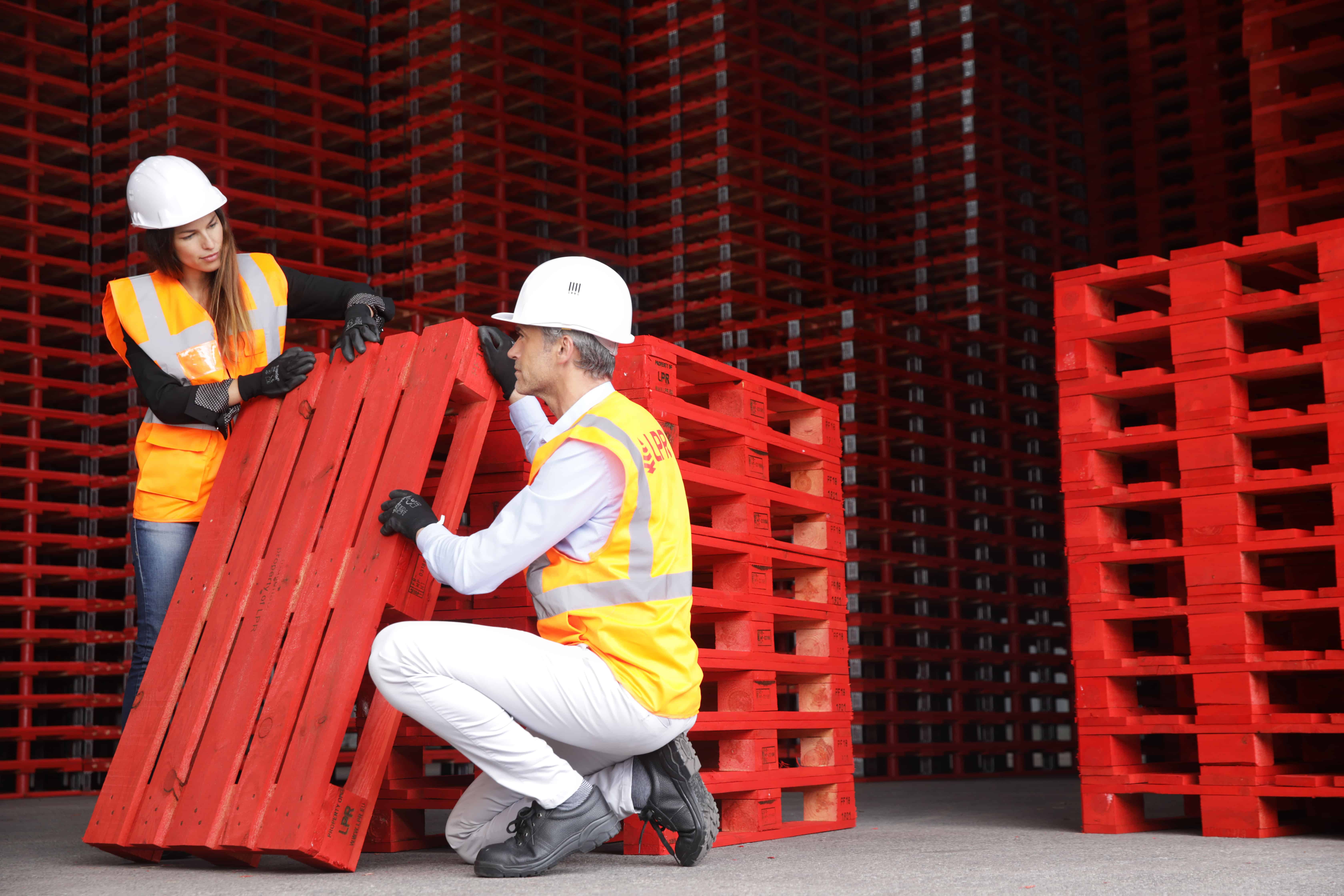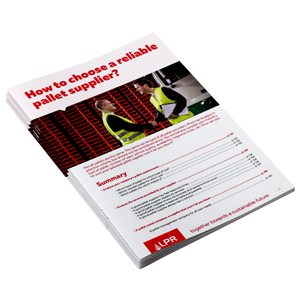Did you know that wood represents 95% of all pallets used across Europe?
A wooden pallet is in many respects, just like any other product, it has a lifespan. The average lifespan of a reusable wooden pallet is noted to be between 8 and 10 years. It is not uncommon for a pallet to become so damaged that it is irreparable or even dangerous by the end of its lifespan.
What makes LPR’s pooled pallets different?
Pallet rental contributes to the reduction of waste and in optimising resource. If LPR’s life of a pallet analysis is its secret weapon, then this is because it is based upon its pallet management system.
At LPR, the lifespan of a pallet is optimised using the 3 R’s – reuse, reduce and recycle. Each LPR red pallet is returned to its service centres following use, where it is thoroughly inspected, repaired where necessary, and then made ready for reuse.
What is the lifespan of an LPR pallet?
LPR’s pallets have an average lifespan of 5 years. We work carefully with our partners to continuously improve the quality of our pallets in order to maximise this lifespan.
LPR pallets – a virtual circularity
LPR uses a lifespan assessment tool which measures the impact of a product on the environment. It considers all aspects of the product itself and how that product is used. This is from its creation – all the way through to its end of life processing. As LPR’s pallet pool is circular – it forms an important part of the circular economy.
Where a wooden pallet cannot be repaired to meet the rigorous quality specifications expected of an LPR customer, it is recycled. LPR recycles 100% of its end of lifecycle pallets, with processed wood becoming bio mass pellets for heating systems, pet bedding, and other materials. LPR’s specialised nails are also harvested and sent for recycling. A LPR recycled pallet leaves no trace.
This careful use of resource benefits the economy and the planet and reduces the impact on hundreds of trees every year.
Because pallet rental offers the ability to work to stricter and more rigorous specifications, it means that LPR pallets are usually better quality than those that can be bought.
Experience has shown that when a company buys and manages its own pallets, they are not subject to the same levels of inspection and repair (and recycling) that can be found in pallet rental. As a result, they are often poorly maintained, damaged and/or contaminated and continue to circulate within the pallet network damaging equipment and stock. As a result of this, they often have short lifespans, leading to the need for more pallet purchases.
The lifespan analysis carried out by LPR provides reassurance to those working within the supply chain - pallets provided are of an acceptable quality which enables them to be loaded time and again to their maximum dimensions or loads. Having this reassurance when handling pallets means that products are received at retailer locations in good condition.
LPR’s life of a pallet analysis means that it’s pallets are closely monitored during each stage of use – and at repair and end of life.
LPR’s demanding inspection and repair processes means that its pallets are always in optimal condition and are ready to use. LPR’s pallets are the best for use in the FMCG sector.
Circularity in LPR’s pallet pooling – what does that mean?
LPR pallets form a part of the circular economy. The European expert in pallet management has been awarded Ecovadis Platinum ranking – this puts the business amongst the 1% best organisations in terms of CSR. Its status and recognition is based on its commitments to its pallet pooling activities and how it monitors the lifespan. This certification gives LPR a competitive edge in the pooling sector!
As well as having this industry leading certification from Ecovadis, we also optimise our pallet movements. Whether that is reviewing each transport flow to shorten journeys or working with our customer’s transport partners to reduce empty transport miles – this constant focus on ways to optimise flows means that we are reducing our impact on the environment.
Wooden pallets rely on resources which need to be carefully managed. LPR is committed to only using species of wood in its wooden pallets that are carefully managed. LPR pallets are PEFC certified. This means that there is a strong chain of custody in the wood used in the creation and repair of its pallets that comes from sustainably managed forests. This applies whether it is a UK100, PR080, or even its half pallet.
Wooden pallets - The facts and figures
Data from FEFPEB supports LPR’s life of a pallet analysis :
A PR080 (or Euro pallet) with dimensions of 800 x 1200mm can be used almost 30 times per year, in an 8 year cycle. At the end of its lifespan, its emissions are estimated to be at around 26.5kg Co2. By recycling the pallet at this point it is equivalent to 19.21kg of Co2 – however the actual impact on the environment is equivalent to 7.29kg of Co2. This figure is similar to that of a vehicle covering a journey of 31km.
According to the French study at SYPAL and FCBA, a company that uses 100,000 wooden pallets generates 4,550 tonnes of Co2 per year. So using wooden pooled pallets makes ecological sense too.



